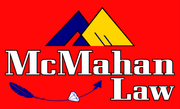
If you're dealing with debts you can't pay off, you might consider bankruptcy. There are two main types of personal bankruptcy, Chapter 7 and Chapter 13. Chapter 7 allows for debts to be discharged immediately—meaning you don't have to pay them back—while Chapter 13 requires you to pay back some of your debts over a three- to five-year payment plan before discharging the remaining debt. Many people assume a Chapter 7 filing is preferable since it discharges debt immediately; however, this isn't always the case. Discover why a bankruptcy lawyer may suggest Chapter 13 below.
What Are the Advantages of Filing for Chapter 13 Bankruptcy?
1. Your Assets Are Better Protected
Before debts are discharged in a Chapter 7 bankruptcy case, it's common practice for assets to be seized and liquidated to pay off creditors as much as possible first. This could include everything from cars to homes and jewelry.
With a Chapter 13 filing, your assets are better protected. For example, you can keep your home even if you are behind on mortgage payments and are facing foreclosure. Chapter 13 allows you to make small monthly payments toward your past-due mortgage over a three- to five-year period without incurring additional interest or penalties.
2. There's Less Impact on Your Credit Score

Any bankruptcy filing will negatively impact your credit score, which can make taking out future loans or lines of credit difficult. However, it's possible to regain good credit over time.
The impact on your credit report varies between Chapter 7 and Chapter 13 bankruptcy. A Chapter 7 filing will appear on your credit report for up to 10 years, while a Chapter 13 filing will appear for only up to seven years.
3. You Can Keep Your Income Tax Refund
With a Chapter 7 bankruptcy, you will likely lose some or all of your income tax refund. However, with a Chapter 13 filing, you will usually be able to retain it for the three- to five-year period during which your case remains active, and you're still sticking to your prescribed payment plan.
Chapter 13 also provides some other benefits to borrowers facing IRS debt. For example, some taxes can be classified as unsecured debts and discharged, and no interest is generally charged on past-due taxes.
If you're wondering whether Chapter 13 bankruptcy is for you, contact McMahan Law Firm, PLLC, of Elizabethtown, KY, for guidance. This bankruptcy lawyer provides personalized client service and will advise what solution is best for you depending on your unique situation. Attorney Teresa Renee McMahan has been working in law since 2002 and was admitted to the Kentucky Bar in 2009. Visit the bankruptcy lawyer's website or call (270) 986-7908 for a consultation.
About the Business
Have a question? Ask the experts!
Send your question

